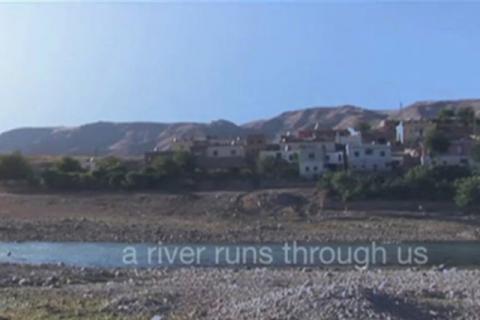On April 4, the Inter-American Commission on Human Rights (IACHR), an organ of the Organization of American States (OAS), officially requested that the Brazilian government immediately suspend the authorization and construction of the Belo Monte Dam Complex in the state of Pará.
According to the IACHR, all of the traditional communities who live in the Xingu river basin and would be affected by the construction of the dam must be consulted through a process that is "free, prior, informed, of good faith and culturally appropriate."
Bulletin articles
This month a new UN round of climate change negotiations took place in Bangkok - the first session after the Cancun conference last December. Many key pending issues over which there was not agreement in Cancun had to be negotiated in the talks.
In a context where alternatives have gone from bad to worse, women groups have raised their voices to strongly ask for real solutions.
“Forest in exhaustion” stems from a controversial proposal by Brazil under the UNFCCC negotiations in Poznan. The interest of Brazil to amend the Clean Development Mechanism (CDM) in order to include “Forests in exhaustion” is that it would allow the CDM to award credits under the Kyoto Protocol for reforestation projects on forest land that has been so over-exploited as to become “exhausted”, and without additional money from the carbon credits would not be replanted. However, it’s not about forests but tree plantations, a main economic activity in Brazil and other Southern countries.
At WRM we have been opposed to FAO’s definition of forests for many years. We believe that it actually serves as an indirect cause of deforestation. According to FAO, a forest is merely “land spanning more than 0.5 hectares with trees higher than 5 meters and a canopy cover of more than 10 percent, or trees able to reach these thresholds in situ” (*), which means that industrial monoculture tree plantations fall under this definition. As a result, industrial tree plantations “disguised” as forests continue to spread throughout the world, often replacing real forests.
Over the last decade, as the effects of climate change have become increasingly visible, there has been a lot of talk from big companies, banks and governments about promoting “clean” energy projects – meaning energy that is not produced from fossil fuels.
As a result, a number of countries have, for example, been developing or expanding nuclear power production.
On a hot May day, a peasant farmer named Bounsouk looks out across the vast expanse of water before him, the 450-square-kilometer reservoir behind the new Nam Theun 2 dam in Laos. At the bottom of the reservoir is the land where he once lived, grew rice, grazed buffalo, and collected forest fruits, berries, and medicinal plants and spices. Now there is just water, water everywhere.
A hydroelectric complex comprising two dams and the diversion of the Xingú River from its natural course on the stretch that flows through the state of Pará; a cost of more than 16 billion dollars; the flooding of 516 square kilometres of Amazon forest; impacts on a total of 1,522 square kilometres of forested lands; between 100 and 142 square kilometres of land left in permanent drought; changes in the river ecosystem, with the introduction of foreign fish species and the extinction of others; loss of biodiversity, which is the source of food and income for millions of people in the Amazon
Cause and effect of a dam
The company staff came
And said nothing would happen
Suddenly a surprise
The parents rose up in protest
The girls made themselves pretty
Because more than 4,000 men came to town
[...]
Some of the girls got caught up
And were showered with promises
They said they had motorcycles and cars
Lots of money
And someday they would get married
But something went wrong
After the adventure, their bellies started growing
And then came the suffering
Indonesia: Since April 2005, two companies involved in the building of a mega-dam in Indonesia, both owned by the a former Vice President of Indonesia, have been compulsory purchasing land from people around the Sulewana river in Poso, Central Sulawesi to make way for the construction and the displacement it will cause.
The project, known as, Poso II will affect the lives of up to 2,000 people. Residents of Peura Village are attacked by police officers as they try to prevent construction access.
The problems associated with large-scale hydropower dams are not a new issue to the Mekong basin. Originating in the Tibetan Himalayas, the Mekong River weaves through Yunnan province in southern China before passing through a small part of Burma, then into Laos, where for a long stretch it forms the Lao-Thai border in north and northeastern Thailand, and then flows south through Cambodia and down to the Mekong delta in Vietnam. Over the past decades, many parts of this river-rich region have been seriously impacted by large-scale hydropower dams.
Along the Congo River in the Democratic Republic of the Congo the Inga hydropower scheme has developed a series of hydroelectric dams, two of them already built – Inga I and Inga II- and two more under development – Inga III and Grand Inga (see WRM Bulletin 138, 77).
For many years now, WRM has stressed that it is unacceptable to certify large-scale industrial monoculture tree plantations. The main target has been the FSC, because it portrays itself to the world as the most reliable and respected label for wood products, and also because its members include numerous non-governmental organizations.

